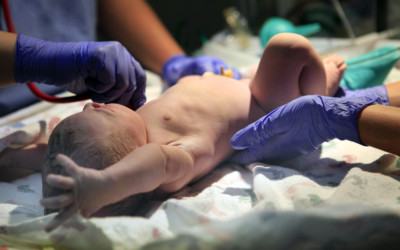Is It Too Late to Bring a Malpractice Claim for Cerebral Palsy?

The impacts of having a newborn born with cerebral palsy are traumatic to new parents in Nova Scotia. The first years are often spent in search of community resources and finding ways to adjust to the care needs their beloved child. A potential medical malpractice suit is often not on the top of the list of immediate priorities.
A question often asked to experienced cerebral palsy malpractice lawyers is whether it’s too late to seek compensation for my child’s cerebral palsy. This question is asked when the parents wait many years before reaching out to a medical malpractice lawyer and they’ve been told about something called a limitation period.
A limitation period is a set period of time in which a wronged person can file a lawsuit for damages. In Nova Scotia it is set by statute. While there are exceptions, the Limitation of Actions Act states that you must file a lawsuit within 2 years after the injury or the wrong.
What does this mean for families of a child with cerebral palsy? Does a lawsuit have to be filed within 2 years of that child’s birth? Seems unfair and unreasonable given all the other adjustments that have to be made. A possible medical malpractice lawsuit is often not top of mind until years later.
The good news is that the strict 2 year rule does not apply to cerebral palsy malpractice claims. This is for several reasons:
First, children in Nova Scotia are not subject to the same time deadlines in personal injury lawsuits as adults. The 2 year limitation period deadline does not begin to run until after the child turns 19 years of age. This means that an individual with cerebral palsy due to possible medical malpractice may start a medical malpractice lawsuit up until they turn 21 years old, even though its over injuries sustained 2 decades earlier.
Second, there is a special section in the Limitation of Actions Act which reads as follows:
19 (1) The limitation periods established by this Act do not run while a claimant is incapable of bringing a claim because of the claimant’s physical, mental or psychological condition.
Because the effects of cerebral palsy can be so disabling physically and mentally, it is arguable in Nova Scotia that the limitation deadlines would never apply to a person with cerebral palsy. This means that an individual born with celebral palsy might be able to file an action and get compensation even if they’re in their 30’s, as long as they were not capable of bringing the action earlier “because of (a) physical, mental or psychological condition”.
Cerebral palsy is a lifelong medical condition caused by damage to the motor control centers of the developing brain. The damage typically occurs during pregnancy or childbirth. This severe condition is usually caused by ashyxia before birth, a lack of oxygen to the brain during labour and deliver or through birth trauma. It is the very definition of a a disabling “physical, mental or psychological condition”.
The reality is that cerebral palsy is often avoidable through the delivery of reasonable medical care, from doctors and nurses before and during delivery. If you or your loved one is has been affected by this condition, it is highly recommended that you speak with a an experienced birth injury lawyer.
Even though the limitation periods are much longer for a cerebral palsy legal claim, it is important to consult with an experienced cerebral palsy lawyer as soon as you or your family may suspect medical malpractice. This is true even though the limitation period may be many years away. This allows your lawyer to work to gather important evidence, to give the child the best chance to recover compensation.
But if you or someone in your family have cerebral palsy from many years, or even decades ago, and you want to know whether medical malpractice caused it, you can still contact a lawyer for a free consultation. Do not think that it’s ever too late. The limitation periods in Nova Scotia will likely allow for compensation regardless of when a claim is filed.





















